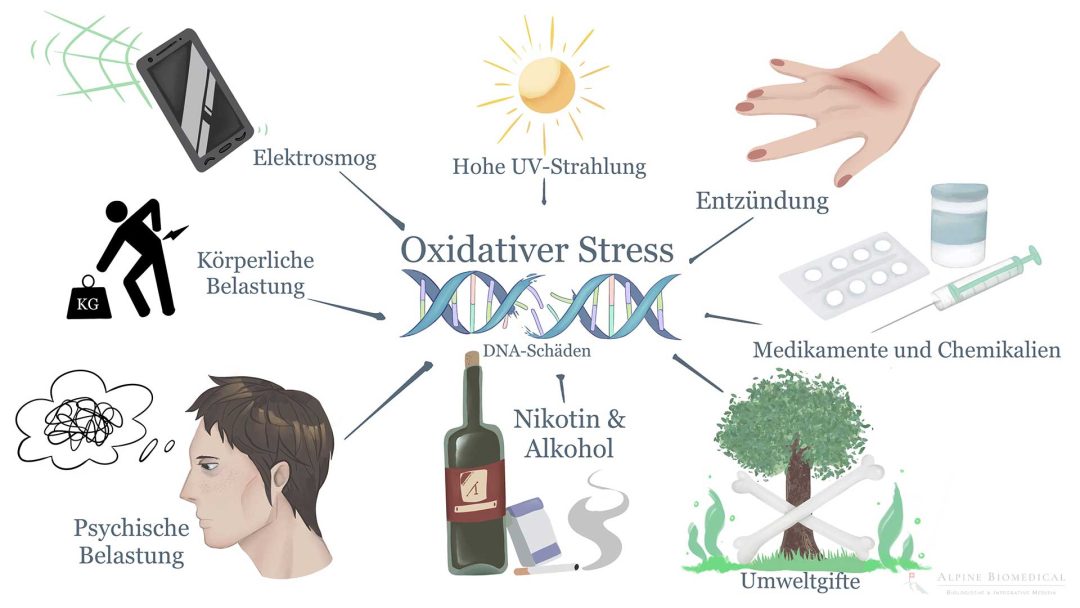Oxidative Stress

Oxidative stress describes a physical condition in which there are more free radicals than antioxidants. Such an imbalance can be a health burden and should definitely be balanced. Factors such as environmental toxins, smoking, an unhealthy diet, stress and genetic factors play a decisive role in the development of oxidative stress.
Free Radicals
Free radicals are unstable, reactive molecules. They occur naturally in every living organism and play an important role in various metabolic processes. In high concentrations, however, they can severely weaken the body and cause serious illnesses. Free radicals are closely associated with oxidative stress. If they are not sufficiently intercepted and neutralised over a longer period of time, they can attack DNA strands and cause massive damage to mitochondria, cells and entire organs.
Antioxidants
Antioxidants are molecules that neutralise free radicals and can therefore curb their destructive effects. Some antioxidants you should be aware of are vitamin C, vitamin E, beta-carotene, alpha-lipoic acid, glutathione and OPC.
Antioxidants are absorbed in sufficient quantities with a proper diet. However, additional sources should be considered if the diet is not wholesome or if there is an increased need.
Antioxidants can also be administered in the form of high-quality nutritional supplements or infusions. What is important here is the purity, quality and molecular structure of the substances. The quantity and combination are also decisive factors that determine the success or failure of a therapy.
Oxidative Stress and Effects on the Body
The effects of oxidative stress on the body are manifold and can affect different organs and tissues. The cardiovascular system is particularly affected, as free radicals can damage the blood vessels and lead to inflammation. This in turn increases the risk of cardiovascular diseases such as arteriosclerosis or heart attacks.
However, other diseases such as cancer, diabetes or neurodegenerative diseases (for example Alzheimer’s and dementia) can also be favoured by oxidative stress.
Other common symptoms are tiredness, fatigue and an increased susceptibility to infections.
Causes of Oxidative Stress
Oxidative stress can be exacerbated by various causes. These include high levels of UV radiation, chronic inflammation, medication, chemicals, environmental toxins, smoking and alcohol, emotional stress, high levels of physical exertion or excessive electrosmog.
The causes can reinforce each other and increase oxidative stress to such an extent that physical symptoms become noticeable.
To treat and prevent oxidative stress, a balanced diet rich in antioxidants, regular exercise and avoiding harmful habits are crucial. To this end, it can be helpful to consider a high-quality, customised nutritional supplement.
Med. pract. Dana Hreus M.A.
At Alpine BioMedical, we are able to determine both the amount of free radicals and the number of free radical scavengers on site. This result can be included in the treatment planning accordingly.

Further information
The information listed contains relevant topics and serves to improve understanding.